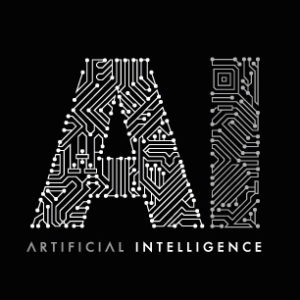 Artificial Intelligence will not just play a part in the delivery of messages to consumers, but will be an integral part of marketing strategies. From the inception of campaigns to the way they are executed to the manner in which results are measured, AI will be central to the entire marketing process.
Artificial Intelligence will not just play a part in the delivery of messages to consumers, but will be an integral part of marketing strategies. From the inception of campaigns to the way they are executed to the manner in which results are measured, AI will be central to the entire marketing process.
Let’s have a look at the few ways, How Artificial Intelligence will change Digital Marketing Forever
Less man, more machine
Learning of consumer tastes and preferences will be done less by human analysis and more by intelligent machines. This promises to yield a more intricate understanding of consumer habits. In the end, messages will be more targeted and more effective, leading to higher chances of sales. It is a huge departure from traditional marketing which depended on grabbing eyeballs forcefully- think huge colorful billboards. Instead of splashing money on such methods that offer little guarantee of reaching the intended audience, marketing will rely on AI to accurately reveal consumer interests through Internet searches.
Many cinematic depictions of AI tell of a world where machines begin to dominate their human creators. This might just be the case in a marketing future built upon artificial intelligence. Most of the responsibilities and key decision making currently handled by chief marketing officers (CMOs) will be taken over by intelligent machines working on big data. Instead of the CMO determining the direction strategy should take and the content required to connect with consumers, AI will be used. A key factor propelling this push will be the time required to get the campaign on the ground. Changes in strategy that may require the CMO setting up meetings with his team can be effected in real-time using AI.
 This is not to sound the death knell for CMOs or marketing teams; there is room for man and machine to coexist. In some firms, AI is currently being used to establish changes in consumer habits and this information used by marketers to design campaigns. And AI taking over some human functions can be a blessing in disguise. Analysis of consumer trends won’t stop during after-office hours or on weekends. While the human workforce is at home recharging, AI will continue dissecting customer data and devising targeted content. The creative aspect of campaign development can be done by humans while the more mundane number-crunching can be left to the machines.
This is not to sound the death knell for CMOs or marketing teams; there is room for man and machine to coexist. In some firms, AI is currently being used to establish changes in consumer habits and this information used by marketers to design campaigns. And AI taking over some human functions can be a blessing in disguise. Analysis of consumer trends won’t stop during after-office hours or on weekends. While the human workforce is at home recharging, AI will continue dissecting customer data and devising targeted content. The creative aspect of campaign development can be done by humans while the more mundane number-crunching can be left to the machines.
Another focus of AI will be developing a conversation with the consumers instead of just ramming promotional messages down their throat. It will allow marketers to get real-time feedback from consumers in addition to helping them personalize messages. In this way, consumers can relay queries about products and get relevant information on offers instantly.
Browsing the Internet promises to be a far more rewarding experience for both advertisers and Internet users. Vendors will spend only on ads that address the needs of their target market while Internet users will only see ads for products that interest them or answer to their needs. This will be a welcome reprieve from the barrage of ads they usually have to deal with. Owners of the website will be more likely to see returns as visitors are more likely to follow through and click on the ads.
How AI can be applied to digital marketing in practice
- Automated content creation: With this form of AI in place, companies don’t need to have a team of paid copywriters. A program can be put in place to generate the content using pre-formatted templates. These type of programs are best suited for short form website content that needs to be updated frequently and not long articles. Besides the wages for the writers, such AI programs can save companies plenty of time as they have a shorter turnaround time.
 In addition to creating content, AI can be used to analyze existing content and pick out language structures and text. These can be used to generate keyword phrases used in automated content creation to improve visibility in search engine results pages.
In addition to creating content, AI can be used to analyze existing content and pick out language structures and text. These can be used to generate keyword phrases used in automated content creation to improve visibility in search engine results pages.
- Refining ads: Using tried and tested algorithms, AI is able to optimize ads posted on social media. Tools like those provided by Zalster allow companies to automate campaign creation as well as refine them to better meet the tastes and preferences of the target audience. They present marketers with visual representations of data on a user-friendly dashboard. Using this they can further fine-tune campaigns to reach potential customers.
- Optimizing websites via A/B testing: A/B testing has long been used by marketers to optimize websites and improve conversion rates. As compared to A/B testing done by humans, that done by AI is more accurate and takes a much shorter time. While a marketing team will need to analyze a lot of content before arriving at a conclusion, tools like Sentient Ascend can provide results using limited sample data.
- Faster decisions: AI tools like KNIME take a fraction of the time to come up with actionable reports from Google Analytics data as compared to human marketers. Built-in algorithms are able to provide a complete, and more thorough, an analysis in minutes. KNIME offers additional tools to further assist the decision-making process.
There are many advantages to be had from introducing AI to CRM and digital marketing. However, the best returns will only be enjoyed by firms that first carry out a thorough audit of their marketing process to see where machine learning can best improve data analysis and marketing content. Companies shouldn’t splash out on AI just to be perceived as tech savvy in the digitization rat race.
More importantly, an analysis of the product should be carried out to iron out any flaws it may have. The last thing any manufacturer or vendor wants to do is draw attention to a low quality or deficient product. Is it, therefore, a good idea to, first and foremost, bring in a quality assessment team to establish if the company’s product meets set standards. A QA team will not only improve the product, they will conduct an audit of the organization’s internal processes and streamline them. Once this solid foundation is in place, artificial intelligence, applied to the firm’s digital marketing strategy will be a more worthwhile investment.

